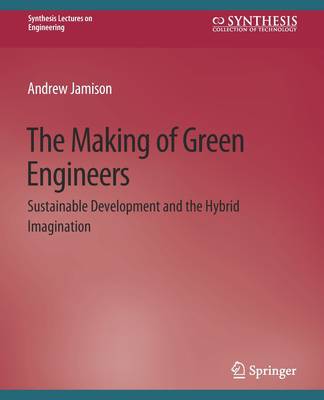
- Retrait gratuit dans votre magasin Club
- 7.000.000 titres dans notre catalogue
- Payer en toute sécurité
- Toujours un magasin près de chez vous
- Retrait gratuit dans votre magasin Club
- 7.000.0000 titres dans notre catalogue
- Payer en toute sécurité
- Toujours un magasin près de chez vous
29,95 €
+ 59 points
Format
Description
This book discusses the ways in which engineering educators are responding to the challenges that confront their profession. On the one hand, there is an overarching sustainability challenge: the need for engineers to relate to the problems brought to light in the debates about environmental protection, resource depletion, and climate change. There are also a range of societal challenges that are due to the permeation of science and technology into ever more areas of our societies and everyday lives, and finally, there are the intrinsic scientific and technological challenges stemming from the emergence of new fields of "technosciences" that mix science and technology in new combinations. In the book, the author discusses and exemplifies three contending response strategies on the part of engineers and engineering educators: a commercial strategy that links scientists and engineers into networks or systems of innovation; an academic strategy that reasserts the traditional values of science and engineering; and an integrative strategy that aims to combine scientific knowledge and engineering skills with cultural understanding and social responsibility by fostering what the author terms a "hybrid imagination." Professor Jamison combines scholarly analysis with personal reflections drawing on over forty years of experience as a humanist teaching science and engineering students about the broader social, political and cultural contexts of their fields. The book has been written as part of the Program of Research on Opportunities and Challenges in Engineering Education in Denmark (PROCEED), funded by the Danish Strategic Research Council, for which Professor Jamison has served as coordinator.
Spécifications
Parties prenantes
- Auteur(s) :
- Editeur:
Contenu
- Nombre de pages :
- 137
- Langue:
- Anglais
- Collection :
Caractéristiques
- EAN:
- 9783031793530
- Date de parution :
- 20-03-13
- Format:
- Livre broché
- Format numérique:
- Trade paperback (VS)
- Dimensions :
- 190 mm x 235 mm
- Poids :
- 281 g

Les avis
Nous publions uniquement les avis qui respectent les conditions requises. Consultez nos conditions pour les avis.






